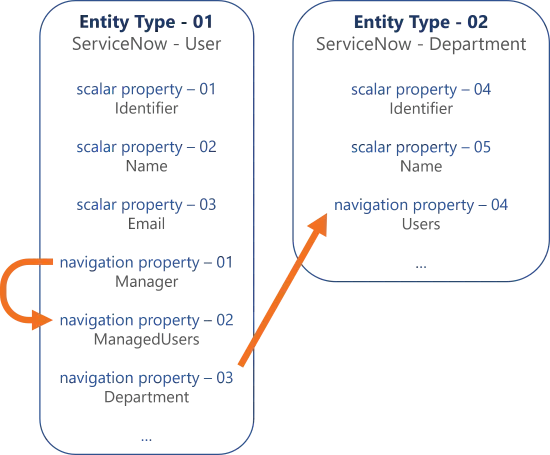Create an Entity Type
How to create an entity type that corresponds to the connector model.
Overview
An entity type is a model of a managed system's data. It defines the shape of the associated resources (instances of said model) and not the intent (that would be a resource type). It defines a set of properties describing said resources and linking them together.
In other words, an entity type is supposed to model the representation of a certain group of resources inside Usercube. It is a relational model, made of properties (scalar properties) and links between entity types (navigation properties), both described later.

The configuration of entity types depends entirely on the previously established model.
Entity types will impact the import of the managed system's resources, and the way said resources are displayed in the UI.
Participants and Artifacts
For a given managed system, integrators may need the help of the application owner who knows the purpose of the application.
| Input | Output |
|---|---|
| Connection (required) Refreshed schemas (required) Connector's data model (required) | Entity type |
Create an Entity Type
Create an entity type by proceeding as follows:
- Create the entity type.
- Define the scalar properties to be used in the entity type.
- Choose the primary key and key properties which will identify resources.
- Define navigation properties if applicable.
- Customize the display names for the entity type's resources.
- Organize the datasheets for the entity type's resources in Usercube.
For some connectors, Usercube provides a template to automatically create a basic configuration. See below this note.
For example, the Active Directory template automatically creates an AD entity type and two resource types for a standard AD connector. The template is available for a connector with an AD connection but no entity types.
Verify the Entity Type
Changes will take effect once you have launched synchronization. Therefore, in order to verify the process, follow the verification procedure indicated for a synchronization.
